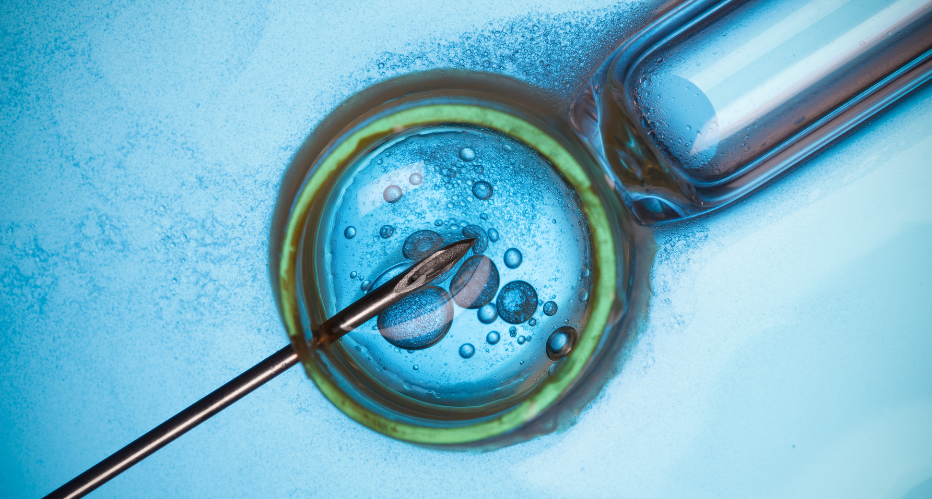Growing Your Family Through ART
Understanding Assisted Reproduction Technology Options

In the journey of family-building, assisted reproduction technology (ART) offers a beacon of hope for many intended parents. As an adoption and ART attorney with more than decade of experience, I've witnessed firsthand the transformative power of ART in helping individuals and couples fulfill their dreams of parenthood. In this article, we'll explore the various ART options available, shedding light on what each entail and how legal counsel can support you through this process.
Exploring ART Options: A Pathway to Parenthood
ART encompasses a range of medical procedures aimed at assisting individuals or couples in conceiving a child. For those facing challenges with fertility, ART opens doors to alternative pathways to parenthood. Here are some key ART options to consider:
1. In Vitro Fertilization (IVF): IVF involves fertilizing an egg with sperm outside the body in a laboratory. The resulting embryos are then transferred to the uterus, where implantation can lead to pregnancy. This method is often utilized by couples or individuals facing infertility due to various factors, including tubal issues, male factor infertility, or unexplained infertility.
2. Egg Donation: In cases where a person cannot produce viable eggs, egg donation offers a solution. Donor eggs, typically sourced from young, healthy individuals, are fertilized with the intended father's sperm or donor sperm through IVF. The resulting embryos are then transferred to the recipient's uterus for implantation.
3. Sperm Donation: Sperm donation is a viable option for individuals seeking to conceive. Donor sperm can be used in conjunction with various ART procedures, including intracervical insemination (ICI), intrauterine insemination (IUI) or IVF, to achieve pregnancy.
4. Surrogacy: Surrogacy involves a third-party carrier, or surrogate, who carries a pregnancy on behalf of intended parent(s). Whether due to medical reasons or personal choice, surrogacy provides a pathway to parenthood for individuals or couples unable to carry a child themselves. Gestational surrogacy, where the surrogate carries an embryo created from the intended parents’ or donors’ genetic material, is the most common form of surrogacy utilized today.
Navigating Legal Considerations in ART
While ART offers hope and possibilities, navigating the legal landscape is paramount to ensuring a smooth and legally secure journey to parenthood. As an ART attorney focusing on ART matters, I work closely with intended parents, donors and surrogates to address legal considerations every step of the way. Here are some essential aspects to consider:
1. Parental Rights and Responsibilities: Clarifying parental rights and responsibilities is crucial, especially in cases involving third-party reproduction. Legal agreements outlining parental rights, financial obligations, and future contact between parties provide a foundation for a secure family-building journey. Many States provide for pre-birth parentage options. Some state (ex: Virginia) have post-birth process. It is important to work with an attorney who is knowledgeable about the parentage process.
2. Surrogacy Contracts: For those embarking on the surrogacy journey, a comprehensive surrogacy contract is essential. This legally binding document outlines expectations, reimbursement or expenses repayments, and potential scenarios that may arise during the surrogacy process. This agreement will need to be drafted and reviewed by ART attorneys to ensure ensure that the rights of all parties involved are protected.
3. Donor Agreements: When utilizing donor gametes (eggs or sperm), a clear donor agreement is imperative to address issues of parental rights, anonymity (if applicable), and future contact between donors and resulting children. Legal counsel can help draft agreements that uphold the interests of all parties involved.
Seeking Professional Guidance
As you embark on your journey to parenthood through ART, seeking professional guidance is paramount. From understanding your options to navigating complex legal considerations, an experienced attorney can provide invaluable support and expertise. With a deep understanding of both adoption and ART matters, I am here to guide you through every step of the process, ensuring that your family-building journey is as smooth and legally secure as possible.
In conclusion, ART offers a multitude of options for individuals and couples seeking to grow their families. By understanding the various ART options available and seeking legal counsel early in the process, you can embark on your journey to parenthood with confidence and peace of mind. Your dreams of building a family are within reach, and I am here to help you navigate the path forward.
For expert legal guidance and support in your ART journey, don't hesitate to reach out.
Together, we can turn your dreams of parenthood into a reality.











